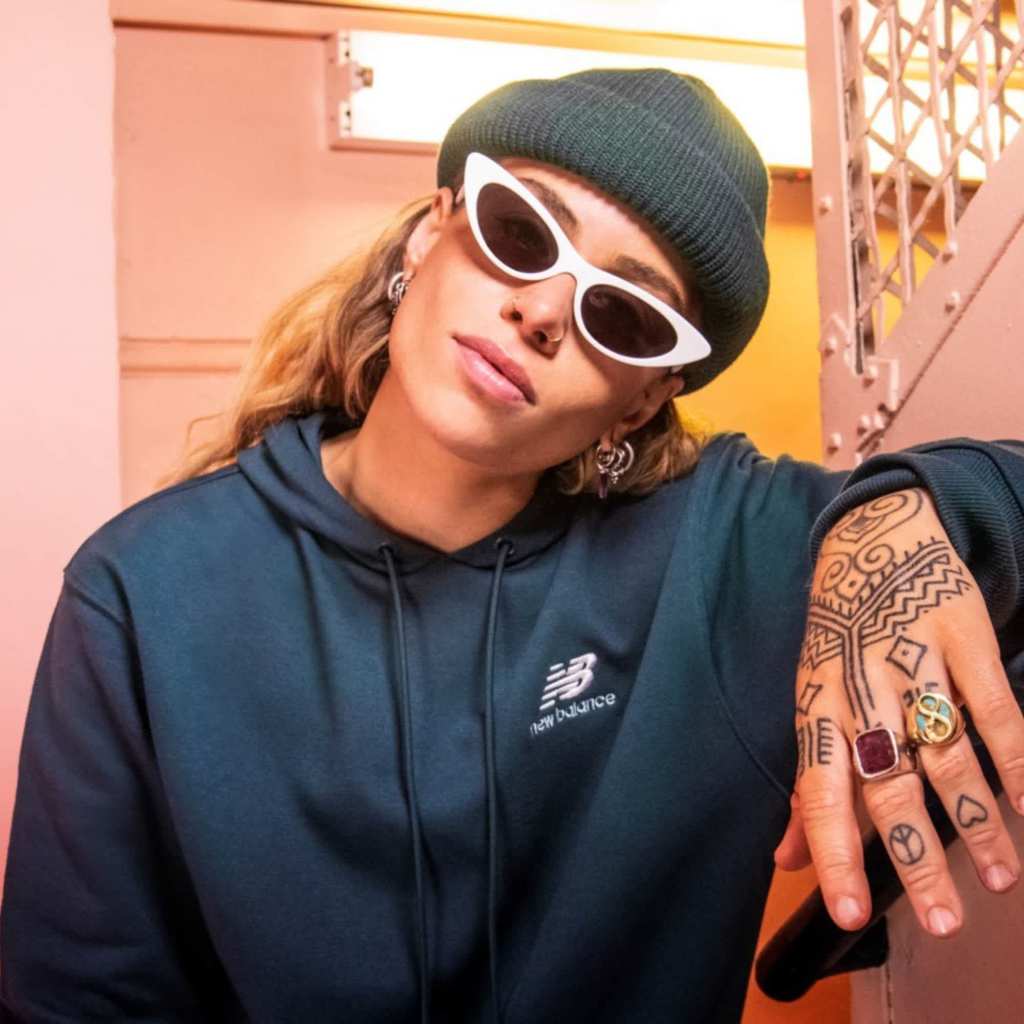In a move that really feels quite organic to where we are societally, mainstream brands such as New Balance, Nike, H&M have launched gender neutral collections within the last year, marking 2021 as a game-changing year for representation in the fashion industry.
Although it doesn’t necessary feel ground-breaking, given that gender fluidity is a widely accepted and celebrated part of society, allowing a space for people that identify as non-binary or not with any specific gender, is a really important step for accepting diversity.
It may seem like a no-brainer, but mainstream brands opening up to diverse audiences is a big sign of progression. In a society that is led so heavily by pop culture, it’s really important for brands that have a large audience to lead by example when it comes to inclusivity and diversity.
When brands take initiative to align themselves with progressive values, it only leads to further representation. Celebrities, influencers and media personalities that believe in their brand values will get on board to help spread the message, and before you know it, gender neutral fashion becomes a part of pop culture conversation.
A recent example is Australian gender fluid multi-instrumentalist, singer-songwriter, producer and engineer, Tash Sultana, who recently signed their first ever brand ambassadorship; being the face of New Balance’s new gender neutral, sustainable range of footwear.
When Tash was approached, they weren’t sure why more brands aren’t pushing into the unisex space.
“It was like music to my ears, because why is that not a thing?” Tash tells POPSUGAR Australia. We’re sitting on a black couch in a small white room and their presence is electric.
It’s a good question. Before 2021, very few brands that had previously been male or female skewed had taken the step to create a space dedicated to unisex, gender neutral or non-binary customers. I mean sure, some brands have always been better at catering to “everyone”, with designs that are quite classic and neutral by nature, but they weren’t designed or dedicated towards an actual space for a gender fluid shopper.
“This is where we are, in 2021 and entering 2022,” Tash says.
“People like me have always existed and not even just people like me, some people just don’t want to wear women’s clothes. Some people don’t want to wear men’s clothes. Some people don’t know what they want to wear.
“Now, you have the option to go men’s today, women’s tomorrow, unisex now… it simple depends on how you feel when you wake up.”
Tash talks passionately about gender fluidity. They identify as gender fluid and use the pronouns they/them. If you’re unfamiliar with what this means, it’s Tash’s identify; they don’t identify with any specific gender, their identity is fluid and they don’t want to be confined to a label.
Obviously, for people that identify similarly to Tash, their experience of shopping has not felt as straightforward as people that identify as cis-female or cis-male. In an old school fashion world, clothes, shoes and accessories were designed for “men” and “women” but nothing in between.
Furthermore, if you present in a feminine way and are found shopping in the men’s section, it’s sadly pretty common to be questioned. This highlights the importance of creating an actual physical space for gender fluid, gender neutral and non-binary people to shop and feel represented.
“People feel very empowered to be women and very empowered to be men and that’s very important to not leave out,” says Tash.
“But the people that sit in the middle — or off in space somewhere entering into the seventh dimension — we want more options. We don’t want to be questioned why we’re in this section of the store.
“If you were somebody who was in early transition phase — male to female, female to male — and you’re not quite confident that you’re passing, it’s a scary time. There are some freaky people out there that don’t accept that.
“You then don’t want to be asked “why?” when it comes to your identity.”
Even if you’re like Tash, who says they’re “not fancy” or “really about brands”, you still want to feel represented by the clothes. Because it’s not just about visual representation. It’s not just about the massive billboard fashion advertisements that take up space and speak a silent message, but it’s also about how the designs make you feel.
Just like women who struggle with body image issues because fashion up until now has basically just been represented on thin bodies, people that identify as gender fluid want to be able to relate with the clothes, shoes and accessories on the rack. Good fashion makes you feel something, but you have to be able to relate to it to really feel seen and accepted by it.
Gender neutral fashion being readily available is important and for people like Tash Sultana, who not only graces us with vibe-y music but also openly represent gender fluidity and the power of personal style, it’s about time.
Because at the end of the day, if you’re dressed like you, that is the most beautiful version you can be.

